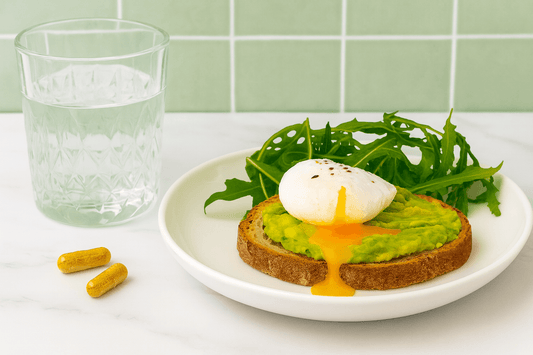
Should you take food supplements?
I read an article which disparaged immune supplements; the general premise being that we can’t ‘boost’ immune system function, it gets on with its work, no pills needed. I think it’s an overly simplistic way of looking at supplementation and the body's needs.
So I’m covering some reasons we benefit from supplements and how to know they’re safe and effective.
Who needs supplements
Every bodily function relies on certain nutrients; ensuring we have optimal amounts of them is key to staying healthy.
Some say we need only get these from food. But while we obviously should eat a nutrient-rich diet, there are many reasons you might want or need to top-up with supplements!
-
Knowing that we don’t always eat the best, natural food. Should eat 10 portions of fruit and veg a day but the reality falls short. Plus, aside from the prevalence of nutrient-poor processed foods in our diet, even the fresh food we buy can be negatively impacted by soil depletion, non-organic farming, long-distance transportation & storage
-
Nutrients we lack e.g. B12 (vegans), K2 (diets lacking in fermented foods), D3 (lack of sun)
-
Nutrient depletion due to modern lifestyle factors - stress, pollution, smoking, alcohol, prescription medications
-
Prevention: taking care to avoid illness when travelling, performing, busy at work, exposed to cold; or when prone to UTIs/cold-sores/migraines etc
-
Specific health concerns that benefit from higher dose nutrients e.g. cramps and magnesium, PMS and B6
How to tell supplements are safe
The benefits of natural product regulations
Quality supplements from known brands are safe: we adhere to regulations and we can only use nutrients in approved forms.
And these regulations also specify approved health claims for specific nutrients (to stop natural remedies being marketed inappropriately as cures or treatment). For example, I can say that Immune Support contributes to healthy immune function because it contains Vitamin A, Vitamin C and Zinc.
So, the old snake oil fear isn’t an issue as long as you shop with reputable companies who adhere to this; we aren’t experimenting on you with novel ingredients! And we’re able to advise on what’s right for you to take.
The drawback of natural product regulations
The approved health claim system has its drawbacks. While aiming to reduce misinformation, it also reduces the useful info available to us as consumers, due to covering limited nutrients.
There are loads of ingredients, with well-documented health benefits, not yet covered by the health claims register - so we can’t advertise what they’re useful for, regardless of the evidence. This is why on supplement packaging, there’s often a curious lack of information.
People who don’t work in the field often ask why I’m not more explicit about what each ingredient in a formula does; the answer is sometimes that I can’t! It’s challenging to balance health claims legislation against providing helpful info.
This makes it hard for you to choose supplements in a store - and it’s why I aim for City Survivor to be targeted at your most common challenges, and easy to understand. We also test key products to ensure safe levels of heavy metals.
So - can you ‘boost’ the immune system?
Back to the anti-supplement concept that triggered this blog.
I understand why such wording riles people; you aren’t fundamentally altering how the immune system works.
But ultimately, if you’re low on Vitamin C say, or Vitamin D, your immune system is impaired, you’ll more easily succumb to infection. Whereas if you provide the immune system with optimal nutrients (diet/supplements/herbs) you can overcome infection more easily.
Whether one says boost, support, or nourish may simply be semantics.



